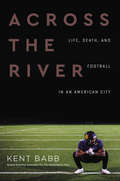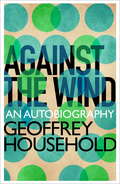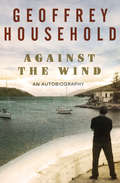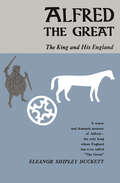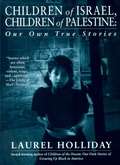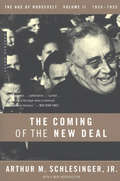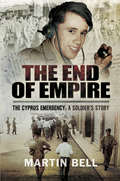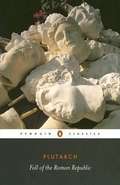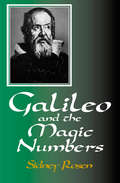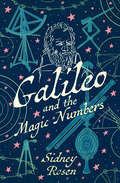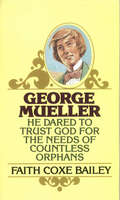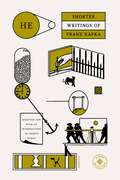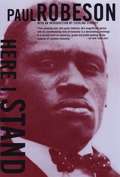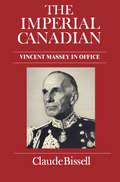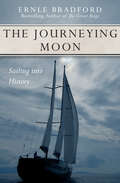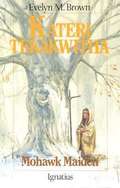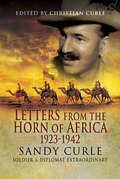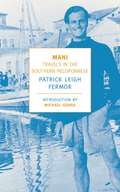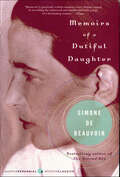- Table View
- List View
Across the River: Life, Death, and Football in an American City
by Kent BabbOn the west bank of the Mississippi lies the New Orleans neighborhood of Algiers. Short on hope but big on dreams, its mostly poor and marginalized residents find joy on Friday nights when the Cougars of Edna Karr High School take the field. For years, this football program has brought glory to Algiers, winning three consecutive state championships and sending dozens of young men to college on football scholarships. Although he is preparing for a fourth title, head coach Brice Brown is focused on something else: keeping his players alive. An epidemic of gun violence plagues New Orleans and its surrounding communities and has claimed many innocent lives, including Brown’s former star quarterback, Tollette “Tonka” George, shot near a local gas station. In Across the River, award-winning sports journalist Kent Babb follows the Karr football team through its 2019 season as Brown and his team—perhaps the scrappiest and most rebellious group in the program’s history—vie to again succeed on and off the field. What is sure to be a classic work of sports journalism, Across the River is a necessary investigation into the serious realities of young athletes in struggling neighborhoods: gentrification, eviction, mental health issues, the drug trade, and gun violence. It offers a rich and unflinching portrait of a coach, his players, and the West Bank, a community where it’s difficult—but not impossible—to rise above the chaos, discover purpose, and find a way out.
Against the Wind
by Geoffrey HouseholdGeoffrey Household's, author of ROGUE MALE, unconventional amusing and exciting autobiography.Ever since the publication of ROGUE MALE, Geoffrey Household has been known in the English-reading world for his audacious and unorthodox tales of adventure. Now, in his autobiography, AGAINST THE WIND, he tells us the story of his own life, sharing with us the background and the experiences from which he emerged as a writer. A gradaute from Oxford he then worked as an apprentice-clerk in the Ottoman Bank, as a banana salesman in Spain, and he served in British Intelligence during World War II in Romania, Greece and the Middle East. In the final chapters he speaks of the writer's craft and of his personal aspirations.
Against the Wind: An Autobiography
by Geoffrey HouseholdIn this fascinating and uniquely colorful autobiography, a twentieth-century master of suspense fiction candidly examines his extraordinary life, times, and art One of the twentieth century's most respected writers of adventure and espionage thrillers, Geoffrey Household penned more than twenty novels and short story collections in a career that spanned more than fifty years--and lived a life as eventful and surprising as his acclaimed, pulse-pounding fiction. In Against the Wind, the author whom the New York Times credits with having "helped to develop the suspense story into an art form" shares his remarkable personal history with candor and wit, while exploring the creative process and his roles as a husband, father, bestselling popular artist, and citizen of his uniquely eventful time. From his years as a student at the University of Oxford to his early career in the cutthroat world of international business and finance to his patriotic service with British intelligence during World War II, with perilous postings in Greece, Romania, and the Middle East that later informed his thrilling fiction, Household evocatively recalls a peripatetic life lived purposefully and often dangerously in some of the most colorful and fascinating regions of the globe.
Alfred the Great: The King and His England (Phoenix Books Series)
by Eleanor Shipley Duckett<p>From the author of The Gateway to the Middle Ages, “a fascinating portrait of an enlightened monarch against a background of darkness and ignorance” (Kirkus Reviews).<p> <p>Filled with drama and action, here is the story of the ninth-century life and times of Alfred—warrior, conqueror, lawmaker, scholar, and the only king whom England has ever called “The Great.” Based on up-to-date information on ninth-century history, geography, philosophy, literature, and social life, it vividly presents exciting views of Alfred in every stage of his long career and leaves the reader with a sharply etched picture of the world of the Middle Ages.<p>
The Campaigns of Alexander
by Aubrey De Selincourt'His passion was for glory only, and in that he was insatiable' Although written over four hundred years after Alexander's death, Arrian's Campaigns of Alexander is the most reliable account of the man and his achievements we have.
Children of Israel, Children of Palestine: Our Own True Stories
by Laurel HollidayIsraeli Jews and Palestinians appear side by side for the first time in this remarkable book to share powerful feelings and reflections on growing up in one of the world's longest and most dangerous conflicts. Here, thirty-six men and women, boys and girls, tell of their coming-of-age in a land of turmoil.From kibbutzim in Israel and the occupied territories to Palestinian refugee camps in the West Bank and the Gaza Strip, Israeli Jews and Palestinians tell of tragedy and transcendence as they face their deepest fears and dream of a peaceful future. Listen to them as they recount stories of their brief and often violent youth.No matter what their ethnic identity, how much and how long they have suffered, these courageous autobiographers most often reveal a deep longing for peace. Perhaps their hopes and fears are best illustrated by a parable retold by eighteen-year-old Redrose (a pseudonym):"Two frogs got trapped in a jar of cream. They couldn't jump out of the liquid and they couldn't climb because the sides of the jar were slippery. One frog said, 'By dawn I'll be dead,' and went to sleep. The second frog swam all night long and in the morning found herself floating on a pat of butter."
The Coming of the New Deal: The Age of Roosevelt, 1933–1935 (The Age of Roosevelt #2)
by Arthur M. Schlesinger Jr.Volume two of the Pulitzer Prize-winning author&’s Age of Roosevelt series describes Franklin Delano Roosevelt&’s first tumultuous years in the White House.Coming into office at the bottom of the Great Depression, FDR told the American people that they have nothing to fear but fear itself. The conventional wisdom having failed, he tried unorthodox remedies to avert economic collapse. His first hundred days restored national morale, and his New Dealers filled Washington with new approaches to recovery and reform. Combining idealistic ends with realistic means, Roosevelt proposed to humanize, redeem, and rescue capitalism. The Coming of the New Deal, written with Schlesinger&’s customary verve, is a gripping account of critical years in the history of the republic.&“Monumental…authoritative…spirited…one of the major works in American historical literature.&”—New York Times &“Impelling, an achievement as much in its sensitivity as in its scholarship…It is essential reading.&”—Kirkus Reviews
The End of Empire: Cyprus: A Soldier's Story
by Martin Bell OBEMartin Bell, the former BBC was reporter and Independent MP, served as a soldier in the Suffolk Regiment during the Cyprus emergency between 1957 and 1959. In a chocolate box in the attic many years later he found more than 100 letters that he had sent home to his family. He was not a journalist then, but the letters give a vivid impression of what it was like to be a conscript on active service during the EOKA rebellion against British rule. They describe road blocks and cordons and searches, murders and explosions and riots and a strategy of armed repression that ultimately failed. From this beginning he has written The End of Empire.His narrative is a powerful and personal account of the violent process of decolonization, of the character of the British Army at the time and the impact of National Service on young men who were not much more than kids in uniform. It also gives a graphic insight into the ultimate futility of the use of force in wars among people and it reveals the true story of the insurgency and the campaign to defeat it.By drawing on recently declassified documents, he shows that Cyprus in the late 1950s was run not by the governor but by a military junta. The army commanders were looking for the knockout blow that would deliver victory, but their misguided tactics served only to strengthen support for their enemy.So The End Of Empire is much more than a personal reminiscence. It is an absorbing account of the experience of army life from the perspective of a private soldier, and it is the inside story of how Britain tried to crush a violent rebellion sixty years ago.
Ezio Pinza: An Autobiography
by Ezio Pinza Robert Magidoff Doris PinzaThe bass, Ezio Pinza (1892-1957) gives an account of his childhood in Italy, arrival in the United States, his opera career at the Met from 1926 to 1948, and his Broadway success co-starring with Mary Martin in Rodgers and Hammerstein's South Pacific. He sang many opera roles but was especially noted for Don Giovanni, Mozart's Figaro and Boris Godunov. Some of his recordings are still available on CD.
Fall Of The Roman Republic
by Plutarch Rex Warner Robin SeagerPlutarch has been called the last of the classical Greek historians and the first modern biographer. Above all, Plutarch was a superb dramatic artist and a brilliant popularizer, a writer who has influenced Shakespeare and many other with his vivid studies of the great Greek and Roman leaders. Plutarch's interest is not in historical analysis but rather in character, in the influences of birth and education, in the significance of individual fame and the moral issue this raises. Born in Boeotia in AD 46, he witnessed both the best and the worst aspects of Roman life during the first century AD - the burgeoning of Latin literature, but also the long and bloody foreign and civil wars that marked the collapse of the Republic and ushered in the Empire. Collected here are his lives of the six men who played a central part in those events- Marius and Sulla, Crassus and Cicero, Pompey and Caesar.
Galileo and the Magic Numbers
by Sidney RosenSixteenth century Italy produced a genius who marked the world with his studies and hypotheses about mathematical, physical and astronomical truths. His father, musician Vincenzio Galilei said, &“Truth is not found behind a man&’s reputation. Truth appears only when the answers to questions are searched out by a free mind. This is not the easy path in life but it is the most rewarding.&” Galileo challenged divine law and the physics of Aristotle, and questioned everything in search of truths. And it was through this quest for truth that he was able to establish a structure for modern science.
Galileo and the Magic Numbers
by Sidney RosenThis &“enjoyable&” biography of the brilliant astronomer will intrigue young people who are &“bored with the textbook approach to science&” (The New York Times Book Review). Sixteenth century Italy produced Galileo, a genius who marked the world with his studies and hypotheses about mathematical, physical, and astronomical truths. His father, musician Vincenzio Galilei said, &“Truth is not found behind a man&’s reputation. Truth appears only when the answers to questions are searched out by a free mind. This is not the easy path in life but it is the most rewarding.&” Galileo challenged divine law and the physics of Aristotle, and questioned everything in search of truths. And it was through this quest for truth that he was able to establish a structure for modern science.
George Mueller (Golden Oldies)
by Faith Coxe BaileyGeorge Mueller—rebellious, absorbed in the world and its pleasures.George Mueller—miraculously transformed by the power of Christ, daring to dream a dream and to trust God to bring it to pass.
George Mueller (Golden Oldies)
by Faith Coxe BaileyGeorge Mueller—rebellious, absorbed in the world and its pleasures.George Mueller—miraculously transformed by the power of Christ, daring to dream a dream and to trust God to bring it to pass.
He: Shorter Writings of Franz Kafka
by Franz KafkaA new selection of Franz Kafka’s shorter fiction and nonfiction work, selected and with a preface by Book of Numbers author Joshua Cohen.“Being asked to write about Kafka is like being asked to describe the Great Wall of China by someone who’s standing just next to it. The only honest thing to do is point.” —Joshua Cohen, from his foreword to He: Shorter Writings of Franz KafkaThis is a Kafka emergency kit, a congregation of the brief, the minor works that are actually major. Joshua Cohen has produced a frame that refuses distinctions between what is a story, a letter, a workplace memo, and a diary entry, also including popular favorites like The Bucket Rider, The Penal Colony, and The Burrow. Here we see Kafka’s preoccupations in writing about animals, messiah variations, food, and exercise, each in his signature style.Cohen’s selection emphasizes the stately structure of utterly coherent logic within an utterly incoherent and illogical world, showing how Kafka harnessed the humblest grammar to metamorphic power, until the predominant effect ceases to be the presence of an unreliable narrator but the absence of the universe’s only reliable narrator—God.
Here I Stand
by Paul RobesonRobeson's international achievements as a singer and actor in starring roles on stage and screen made him the most celebrated black American of his day, but his outspoken criticism of racism in the United States, his strong support of African independence, and his fascination with the Soviet Union placed him under the debilitating scrutiny of McCarthyism. Blacklisted, his famed voice silenced, Here I Stand offered a bold answer to his accusers. It remains today a defiant challenge to the prevailing fear and racism that continues to characterize American society.
The Imperial Canadian
by Claude BissellAristocrat, democrat, diplomat, cultural advocate, anglophile, fiercely proud Canadian--Vincent Massey was a complex, sometimes enigmatic figure. This finely crafted portrait of Massey's middle and later years, drawn extensively from its subject's diaries and papers, recalls a life of deep commitment to the service of his country and its culture.From 1935 to 1946 he served as Canada's high commissioner to London, a role for which he was perfectly suited: his love of English traditions and values was exceeded only by his intense Canadian patriotism. He served well. The courage and generosity of Vincent and Alice Massey made them favourites with Canadian servicemen in Britain during the war years. His familiarity with, and enthusiasm for, all royal ritual was invaluable to the Canadian delegations during the ceremonies surrounding the coronation of George VI. His proud representation of Canada's cultural accomplishments opened British doors to many Canadian artists.The years in London were happy ones for Massey, at home as he was in the country life of the English upper classes. They were followed by a period of frustration. Mackenzie King was minister of external affairs as well as prime minister during Massey's stint as high commissioner, and was therefore Massey's immediate superior. Relations between the two were never very warm--Mackenzie King considered Massey a snob with dangerous ambitions--and when Massey returned to Canada contemplating a political position, possibly a cabinet post, his path was completely blocked.For a time Massey returned to the academic environment he so enjoyed, as chancellor of the University of Toronto. But two of his greatest achievements were still to come. One was the establishment of the royal commission on culture, which bore his name and led ultimately to the creation of the Canada Council. The other was his appointment as governor-general, the first Canadian ever to hold the post.Claude Bissell has followed his award-winning book, The Young Vincent Massey, with another superbly written volume that explores the attitudes, prejudices, commitments, and passions that shaped Massey's life. This is a revealing portrait of a man whose contributions continue to enrich the lives of Canadians.
The Journeying Moon: Sailing into History
by Ernle BradfordA memoir of life as an adventurer and sailor in the Mediterranean, by the noted naval historian. Ernle Bradford spent his twenty-first birthday in Egypt, serving in the Royal Navy during World War II. It was there that he came across the profoundly affecting words of Anton Chekhov: &“Life does not come again; if you have not lived during the days that were given to you, once only, then write it down as lost.&” After the war, Bradford married and settled in London, but the mandate of those words inspired him and his wife to quit their jobs, sell their home, and sail to France in their small ship Mother Goose. The Journeying Moon chronicles their adventures as they travel through Europe and the Mediterranean. From the people of Malta who believed Bradford was a spy from MI5, to his interactions with the Sicilian Mafia, Bradford tells the charming and vivid tale of his days as a true adventurer.
Kateri Tekakwitha: Mohawk Maid
by Evelyn M. BrownThis is the inspiring story of Saint Kateri Tekakwitha, a holy young Indian woman who was converted to Christianity by the French missionaries led by Saint Isaac Joques during the 1600s. She lived as a single woman with deep faith, offering her sufferings and life to Christ.
Lady from Savannah: The Life of Juliette Low
by Gladys Denny Shultz Daisy Gordon LawrenceBased on extensive research, this is a detailed biography of Juliette Low and a portrait of her family and background. Known throughout her life as "Daisy," Low was born in Savannah, GA, in 1860 and grew up amid privilege and comfort. She married into the British aristocracy. In midlife, after her husband's death due to alcoholism, she determined that she wanted to make a contribution to the world and hurled herself into the British Girl Guide movement. In 1912 she brought the movement to the U.S. as the Girl Scouts. The book draws upon Low's rich correspondence and the letters and diaries of her parents and siblings. /
Letters from the Horn of Africa, 1923–1942: Sandy Curle, Soldier and Diplomat Extraordinary
by Christian CurleAfter brief service in the Gordon Highlanders as part of the Army of Occupation of the Rhine post Great War, Sandy Curle sought more adventurous soldiering and in 1923 was seconded to the Kings African Rifles (KAR). Aged 23 he found himself in remotest Somaliland in sole charge and the only European for miles. At one point delirious with typhoid he was only saved by the surprise visit of an Indian doctor. Later he served in Kenya and undertook numerous military expeditions.In 1929 Curle joined the Colonial Service again in Somaliland and Ethiopia. He witnessed the Italians aggression which led to their invasion of Ethiopia in 1935. A spell in Tanganyika as a District Officer followed and on the outbreak of war he rejoined the KAR and was attached to the Somaliland Camel Corps when the Italians invaded. Hopelessly outnumbered, Sandy and his men withdrew to Kenya by troopship.His next assignment was to raise, train and command a battalion of Ethiopian irregulars (Curles Irregulars) and with these he led the reoccupation of Ethiopia winning the DSO and Ethiopian Military Medal.In 1966 Curle was one of 25 veterans invited by Emperor Haile Selaise to celebrate the 25th Anniversary of the liberation from Italian rule.This is a vivid and fascinating collection of correspondence covering some 30 years of war and uncertain peace.
Mani: Travels in the Southern Peloponnese
by Michael Gorra Patrick Leigh FermorThe Mani, at the tip of Greece's--and Europe's--southernmost promontory, is one of the most isolated regions of the world. Cut off from the rest of the country by the towering range of the Taygetus and hemmed in by the Aegean and Ionian seas, it is a land where the past is still very much a part of its people's daily lives. Patrick Leigh Fermor, who has been described as "a cross between Indiana Jones, James Bond, and Graham Greene," bridges the genres of adventure story, travel writing, and memoir to reveal an ancient world living alongside the twentieth century. Here, in the book that confirmed his reputation as one of the English language's finest writers of prose, Patrick Leigh Fermor carries the reader with him on his journeys among the Greeks of the mountains, exploring their history and time-honored lore. Mani is a companion volume to Patrick Leigh Fermor's celebrated Roumeli: Travels in Northern Greece.
Memoirs of a Dutiful Daughter (Perennial Classics)
by Simone de Beauvoir“A book that will leave no one indifferent, and no one affected in quite the same way.” —New York TimesA superb autobiography by one of the great literary figures of the twentieth centurySimone de Beauvoir's Memoirs of a Dutiful Daughter offers an intimate picture of growing up in a bourgeois French family, rebelling as an adolescent against the conventional expectations of her class, and striking out on her own with an intellectual and existential ambition exceedingly rare in a young woman in the 1920s.Beauvoir vividly evokes her friendships, love interests, mentors, and the early days of the most important relationship of her life, with fellow student Jean-Paul Sartre, against the backdrop of a turbulent political time.
Memoirs of a Dutiful Daughter
by Simone De Beauvoir James KirkupSimone de Beauvoir, Parisian pioneer in existentialist philosophy, tells all in the first of a four-part autobiography, "Memoirs of a Dutiful Daughter".
The Mind of St. Paul
by William BarclayFrom the Preface: These chapters originally appeared as a series of weekly articles in the pages of The British Weekly. ... To the original series I have added two chapters, one on Sin and the other on the Church in the thinking of Paul. These chapters do not in any way claim to be an exhaustive and complete Theology of Paul. I have simply gone direct to the Pauline letters to find out what Paul said and thought on certain great subjects. Their aim will be fulfilled, if they send people back to the reading of Paul's letters themselves. This is a well-documented presentation of Paul's ideas. It is easy to read and quite interesting.
